現代の工業生産における生産管理の概要を把握した上で、在庫管理、生産計画、MRP、JIT生産、生産スケジューリング、サプライチェーンマネジメントなどについて学ぶ。そして、生産管理を進めていく上で直面する種々の意思決定課題への工学的なアプローチの仕方を身に付け、実際に適用できるようになることを目指す。
経営システム工学科
DEPARTMENT OF INDUSTRIAL AND SYSTEMS ENGINEERING
SAGAMIHARA CAMPUS
工学的な視点と社会科学の知識を融合し、
“経営”を変革するシステム開発を目指そう
- MENU -
MOVIES 動画で知る経営システム工学科
FEATURES 学科の特色
-
経営システム工学特別講座
毎回、学科教員とゲストスピーカーがペアになって、教員の専門分野とゲストスピーカーの実務体験を同時に学ぶ講座です。ゲストスピーカーは経営者、管理職、若手実務家として活躍する本学科の卒業生が主であり、学科で学ぶ科目が実務にどう役立っているかを広く知ることができます。
-
国際化の取り組み
経営システム工学科では、英語で専門科目を学ぶ取り組み、留学生との交流、海外研修の実施など、学科の学生が国際的な環境でも力を発揮できるよう、国際化に積極的に取り組んでいます。これらの取り組みにより、学生は英語でのコミュニケーションの機会に頻繁に触れることができます。
-
分析技術、モデル化技術、最適化技術の体系的な学習
専門科目・研究室を、分野に応じて、分析技術、モデル化技術、最適化技術の3つの分野に分類し、これらのいずれの分野についても先端ITを駆使して体系的に学びます。このことにより、学生は、特定の分野に偏ることなく、組織経営の基盤となる知識を欠けることなく身につけることができます。
-
実験科目による実践的な学習
3年次には、モデルか技術実験、分析技術実験、最適化技術実験に取り組みます。これらの実験科目では、講義科目で培った基礎知識を、実践的に活かすための実験を行います。これらの実験を通して、3つの技術分野において学んだ知識を役立てる方法を身につけます。
PICK UP LECTURES 授業紹介
多変量解析Ⅰ
多変量解析を十分に理解しその魅力を体感するための、理論と実際に焦点をあて、多変量解析要諦をなし、世の中で広く活用されている相関分析、回帰分析、判別分析の基礎を学ぶ。あわせて、多変量解析用のコンピュータソフトでどのような計算がされているかも学ぶ。
IE技術
IE(インダストリアル・エンジニアリング)は経営システム工学の中核である。この授業では、歴史と事例、動作研究、時間研究、などの観点から、IEをわかりやすく学ぶ。そして、企業活動におけるIEの役割、「改善」のための発想に重点をおいた仕事の方法と分析、仕事時間の把握等の基礎知識を身につけ、「改善力」を身につけることを目指す。
LABORATORIES 研究室紹介
IE(インダストリアル・エンジニアリング)(松本俊之教授)
インダストリアル・エンジニアリング(IE)とは、人・モノ・お金・情報を含むシステムの仕事の生産性を向上させる改善活動もしくは問題解決活動です。松本研究室では、企業のもの造りを基本にして、より効率化を目指す生産企業での効果的改善技術、効率的な農業経営、楽しい環境教育、実践的経営工学教育などを研究しています。これらの研究では生産企業との共同研究を実施し、開発したシステムを現場に導入したり、また、環境教育のためのゴミ分別ゲームなどを開発して学校や自治体などで実践しています。
数理最適化モデルの実装とその産業応用研究(小林和博准教授)
小林研究室では数理工学の研究を行っています。なかでも、数理最適化におけるアルゴリズムの開発と、そのコンピュータへの実装に力を入れています。また、数理工学の新しい分野の開拓にも取り組んでいます。数理最適化はその強力な問題解決能力から、ビジネスの様々な場面で活用されています。そして、実務規模でその能力を発揮させるには、効率的なソフトウェアとして実装する必要があります。この観点から、数理最適化の基盤理論から、実務規模データで動作するソフトウェア実装までを研究対象としています。
INTERVIEW 学生・卒業生インタビュー
-
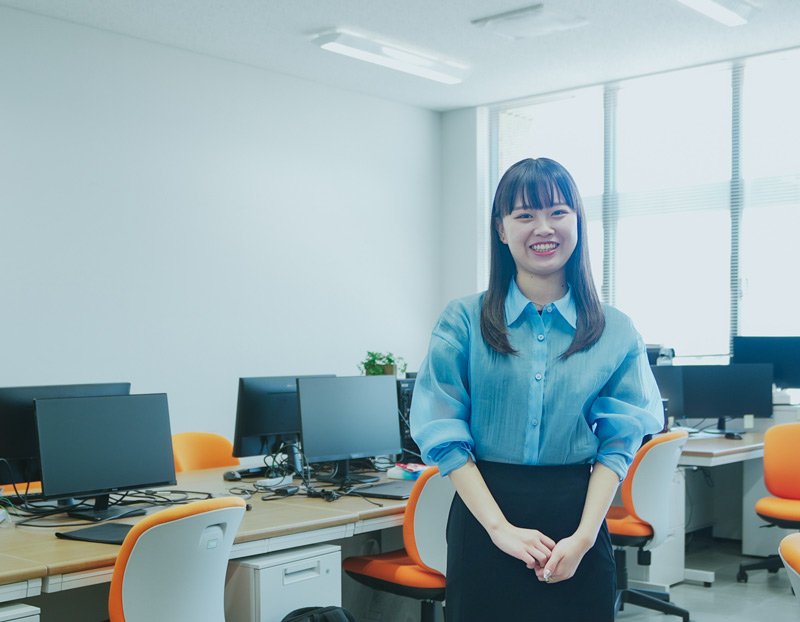 須藤 優衣 在学生
須藤 優衣 在学生効率を良くしたい。その思いで学んだ機械学習とデータ分析で世の中を便利にする
(2024/7/25 公開)
須藤 優衣 在学生 -
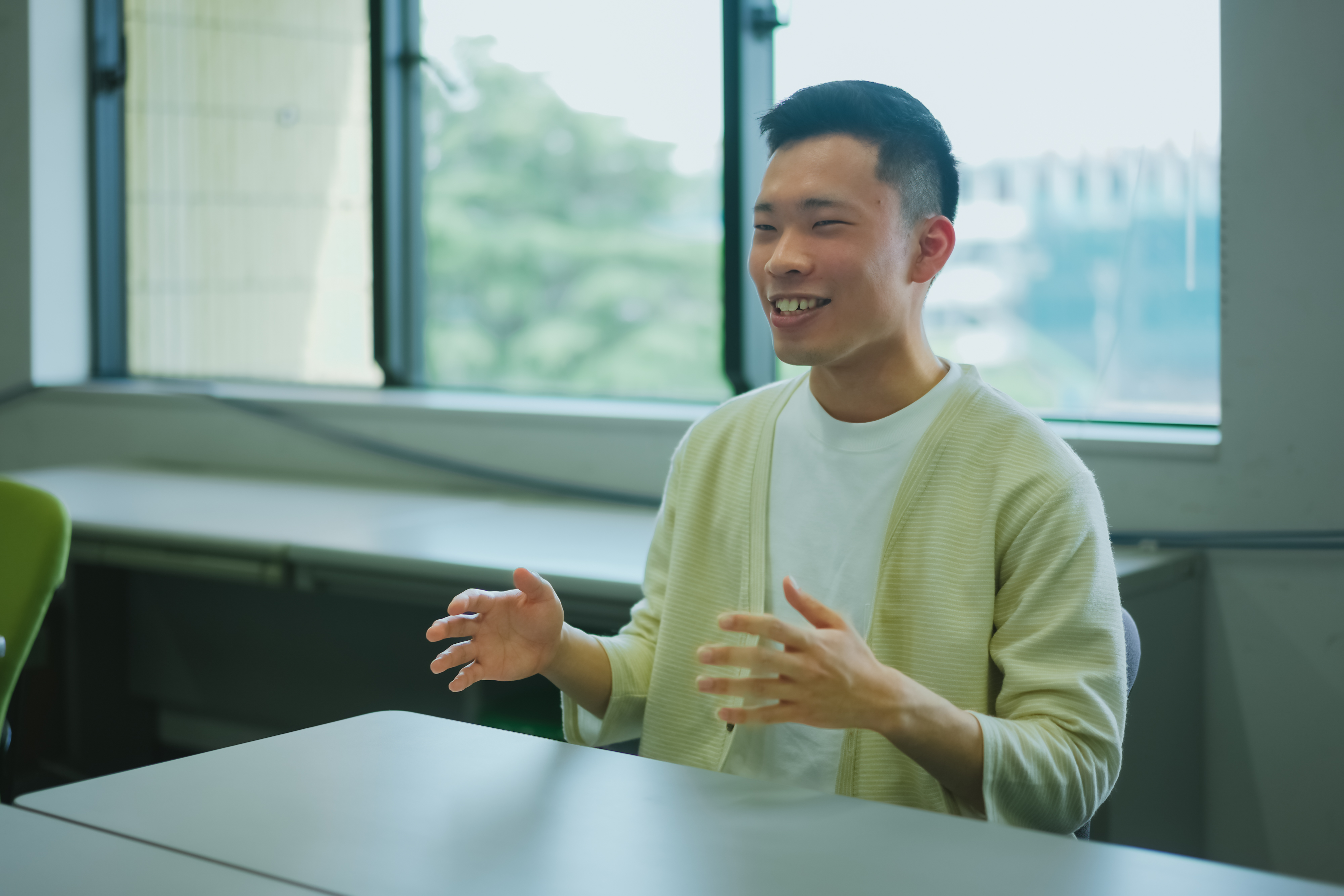 目黒 心 在学生
目黒 心 在学生学びの中で見えてきた自分の道データサイエンティストを目指して研究に打ち込む
(2023/7/14 公開)目黒 心 在学生 -
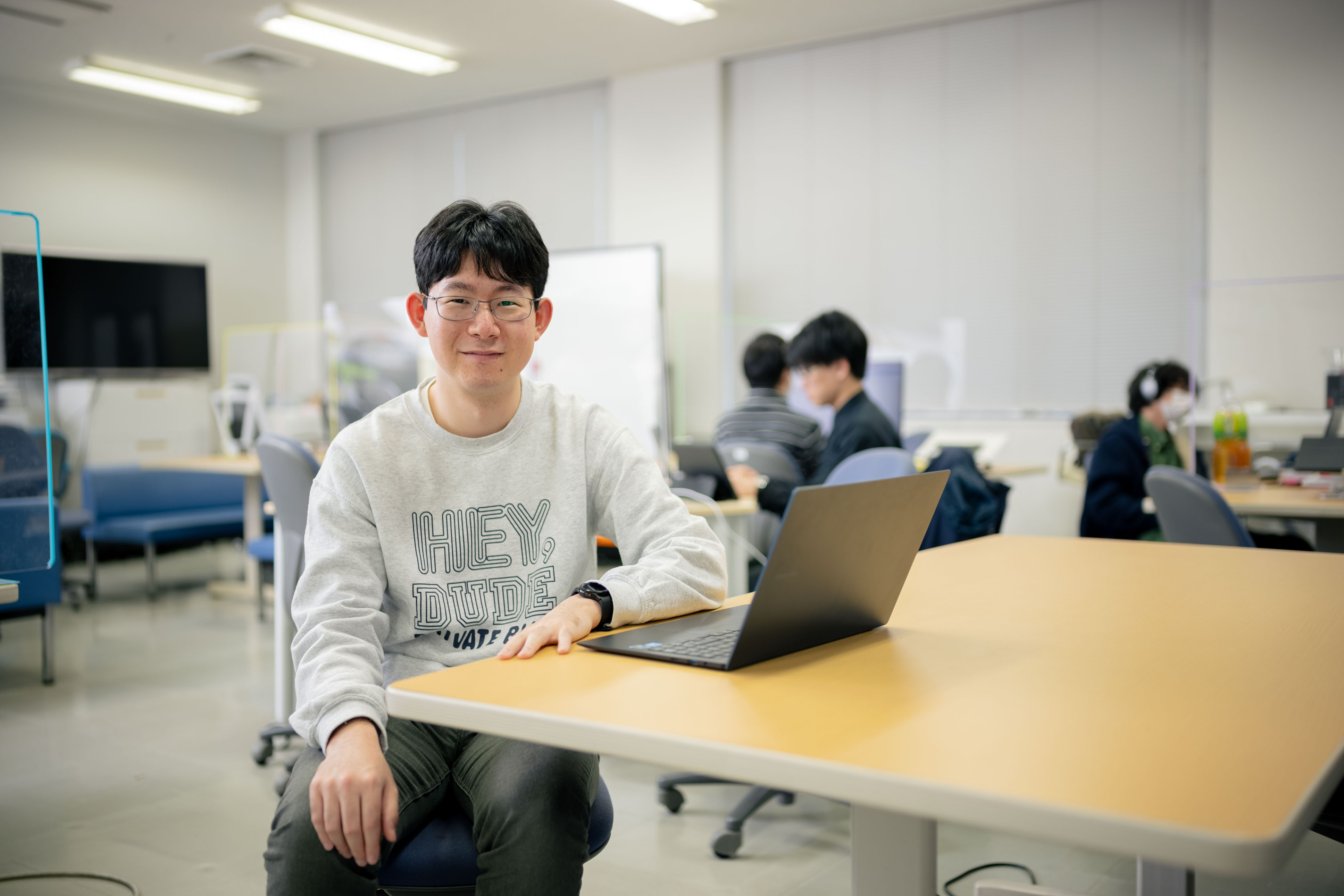 水上 拓紀 在学生
水上 拓紀 在学生理工学高度実践プログラムを利用して暗号資産の研究に2年次から着手
( 2022/9/12 公開)水上 拓紀 在学生 -
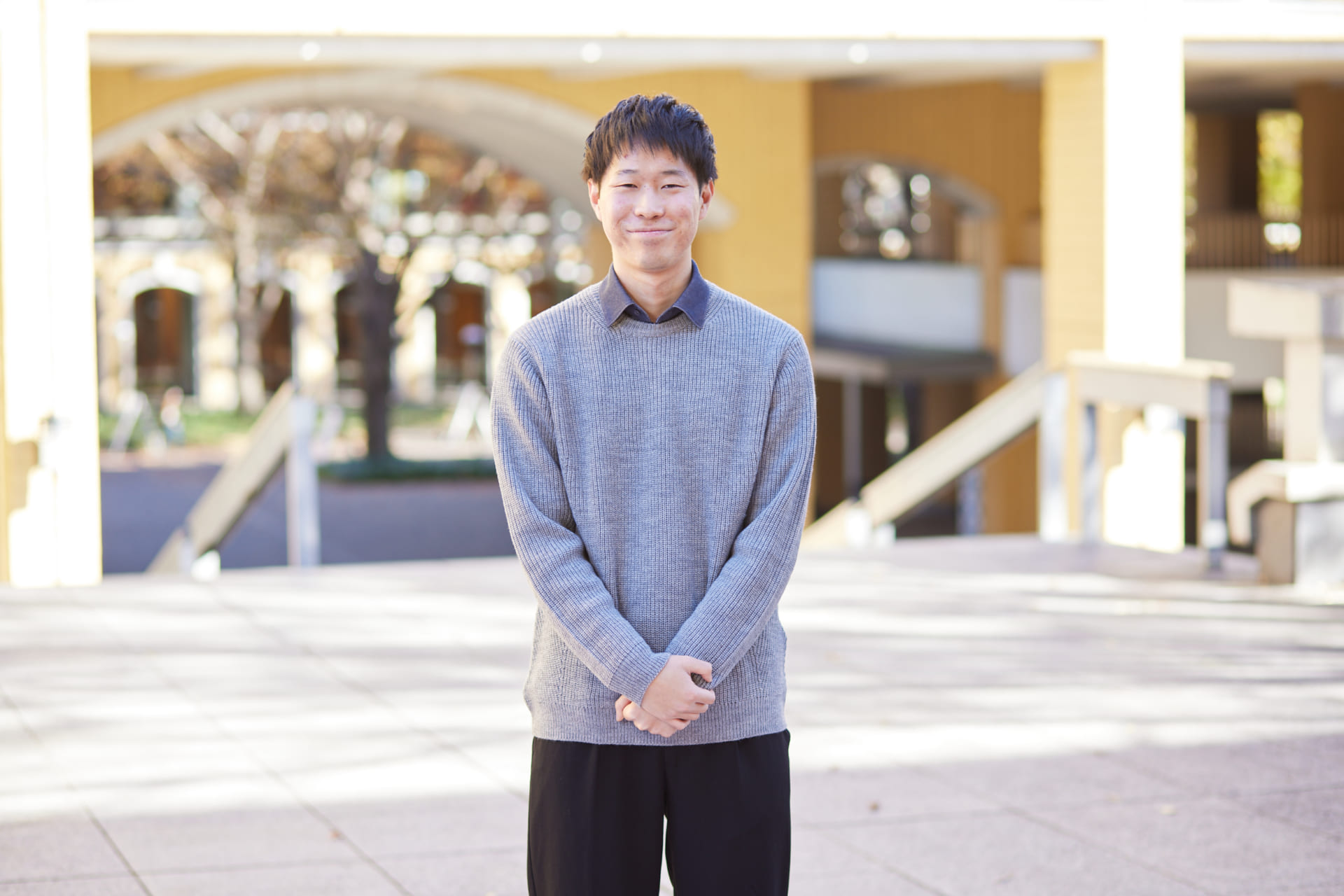 宮島 壱登 在学生
宮島 壱登 在学生憧れの業界に対する熱意が綿密な企業研究を経て自信へと昇華
(2022/7/19 公開)宮島 壱登 在学生 -
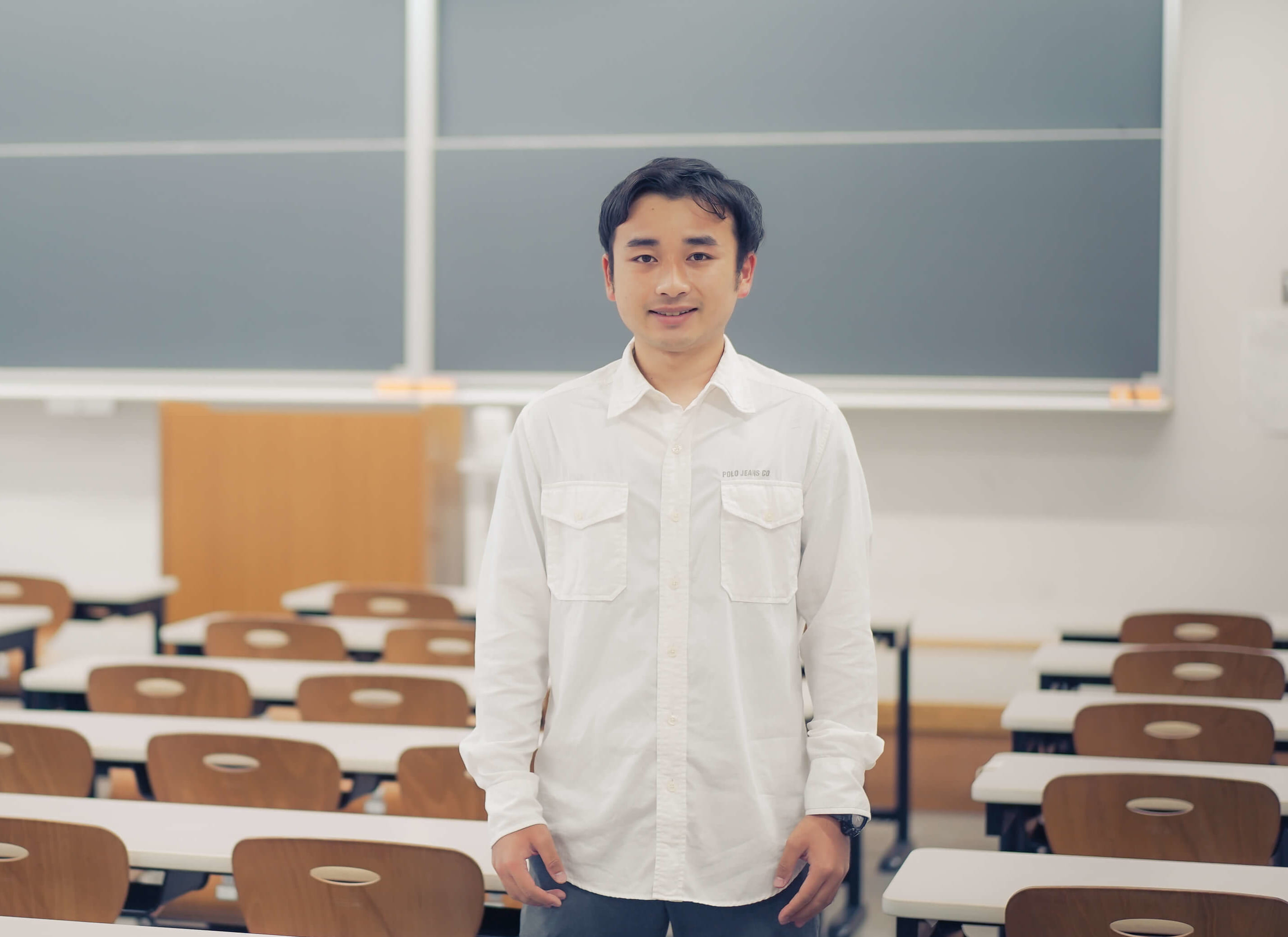 尾下 幸輝/松原 亮馬 在学生
尾下 幸輝/松原 亮馬 在学生幅広い学びから選んだ人工知能という分野経営システム工学科の学びで現代社会の発展に貢献したい
(2021/9/3 公開)尾下 幸輝/松原 亮馬 在学生
FROM FACULTY MEMBERS 教員・研究室インタビュー
-
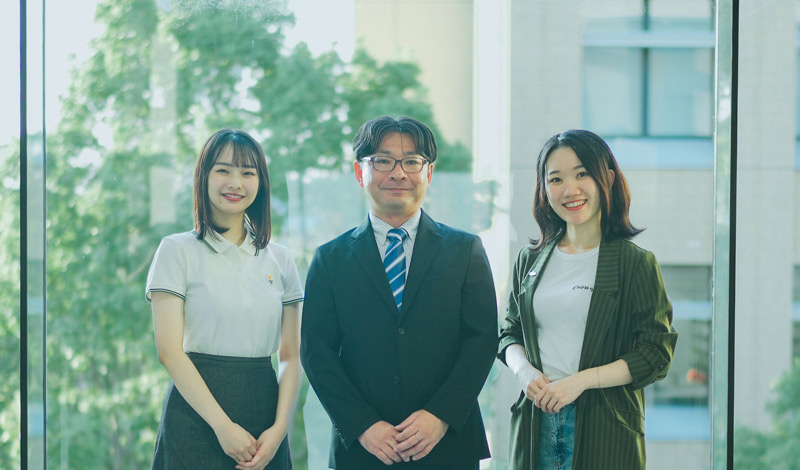 大内 紀知教授 × 南藤 朱夏里 × 山本 留光 AGU LiFE 研究室インタビュー
大内 紀知教授 × 南藤 朱夏里 × 山本 留光 AGU LiFE 研究室インタビューデータ分析を用いて企業の競争力向上や消費者の意志決定の要因を探る
(2023/11/9 公開)大内 紀知教授 × 南藤 朱夏里 × 山本 留光 AGU LiFE 研究室インタビュー